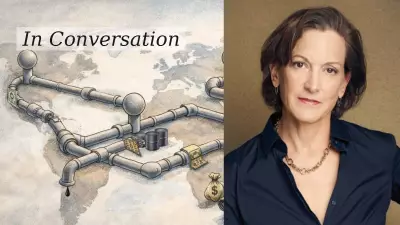
The serene city of Chandigarh finds itself at the heart of a raging political and constitutional storm. The catalyst for this upheaval is Article 240 of the Indian Constitution, a provision that has reignited a long-standing debate about the city's governance and its relationship with the state of Punjab.
The Constitutional Trigger: Understanding Article 240
At the core of the controversy lies Article 240, which grants the President of India the power to regulate and amend laws for Union Territories. The current flashpoint is a recent move by the central government, which many political observers and leaders from Punjab interpret as a step towards exerting greater direct control over Chandigarh. This has raised alarms, as Chandigarh is not just any Union Territory; it serves as the shared capital of both Punjab and Haryana, a unique arrangement born from the Punjab Reorganisation Act of 1966.
The specific actions taken under the ambit of this constitutional provision have brought the issue back into the national spotlight, challenging the delicate political balance that has been maintained for decades.
A Historical Wound Reopened
To understand the present conflict, one must look back at the history of Chandigarh. The city's status has been a point of contention ever since the state of Haryana was carved out of Punjab in 1966. While it became a Union Territory and the joint capital, a promise was made that it would eventually be transferred fully to Punjab. This promise remains unfulfilled, creating a persistent sense of grievance in the state.
Political parties in Punjab, including the ruling Aam Aadmi Party (AAP) and the opposition Shiromani Akali Dal (SAD), have united in their criticism of the central government's recent actions. They perceive the use of Article 240 as a move that undermines Punjab's claim over its capital and could potentially alter the demographic and administrative character of the city.
Political Reactions and Future Implications
The invocation of Article 240 has triggered a sharp political response. Leaders from Punjab have accused the central government of overstepping its bounds and attempting to dilute the state's rights. This has transformed the issue from a legal debate into a major political confrontation, with potential repercussions for inter-state relations and center-state dynamics.
The situation places Chandigarh at a critical crossroads. The debate goes beyond mere administrative control; it touches upon regional identity, historical agreements, and the spirit of federalism in India. The way this conflict is resolved could set a significant precedent for the governance of other Union Territories and the relationship between the central government and the states.
As the storm over Article 240 continues to gather strength, all eyes are on the constitutional authorities and political stakeholders to see how they navigate this complex and emotionally charged issue. The future of Chandigarh, a city symbolizing modern India's planning and aspirations, now hangs in the balance, awaiting a resolution that honors both constitutional provisions and historical contexts.




